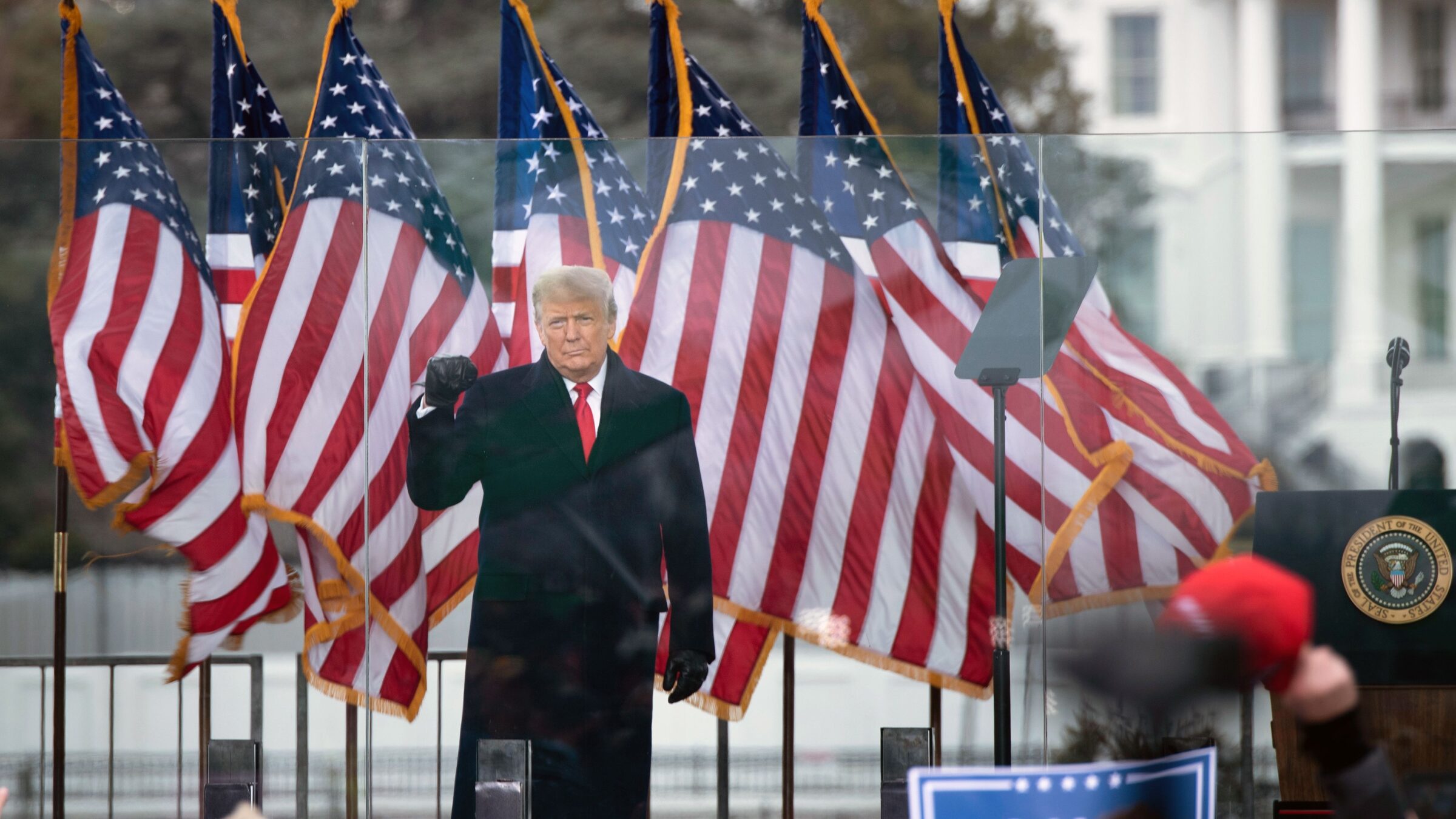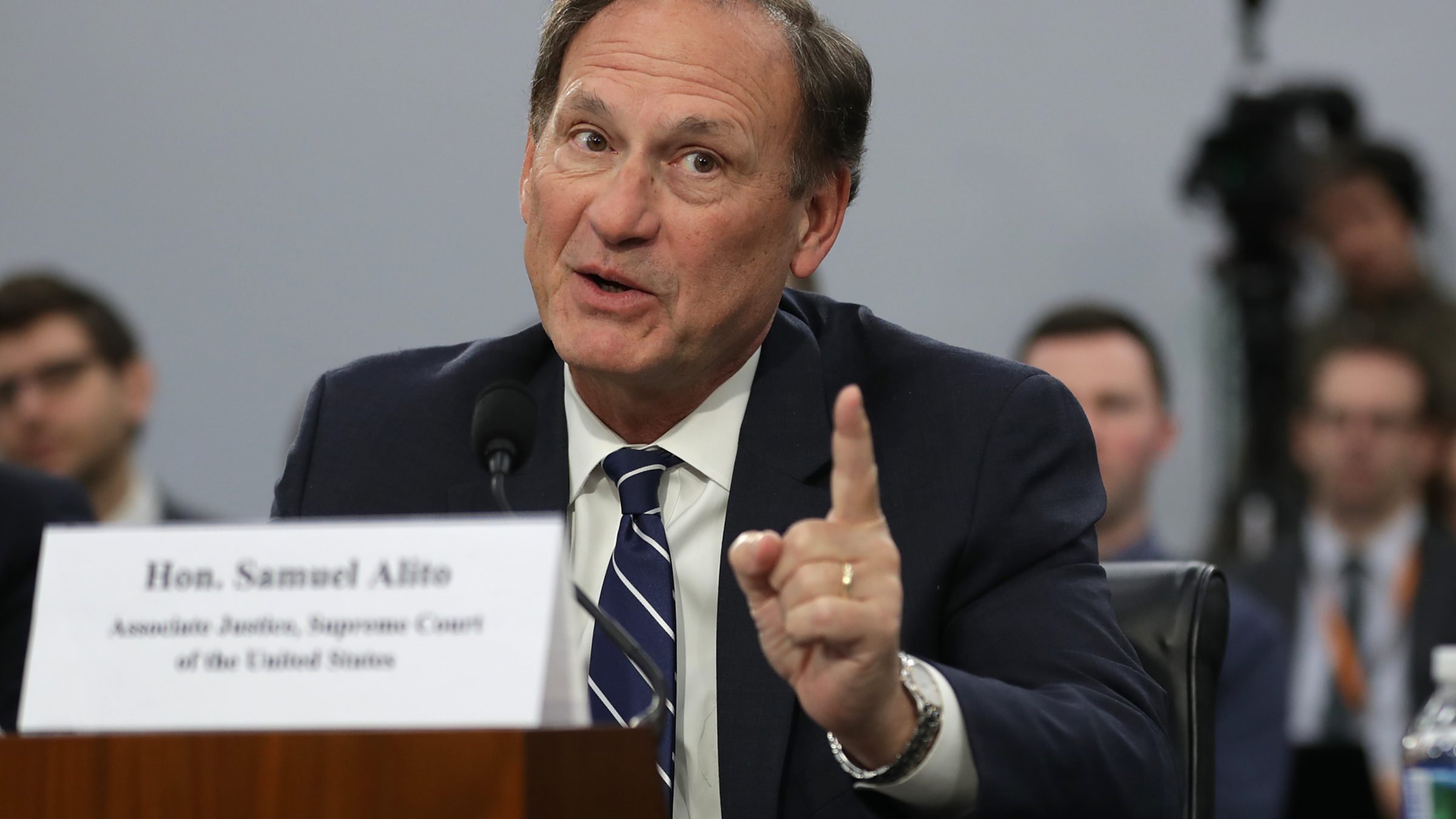Three years ago, Donald Trump tried to retain the presidency by force and fraud. One might assume there would be consequences for doing such things. And in theory, you would be correct: The Constitution contains a specific provision barring people who tried to overthrow the government from holding office in the future. But this morning, both Republican and Democratic Supreme Court justices suggested that they’re prepared to find a way to make the Fourteenth Amendment’s Disqualification Clause worth less than the parchment it was written on.
On Thursday, the Court heard oral argument in Trump v. Anderson, a case about whether Donald Trump’s role in the January 6 attack on the Capitol makes him constitutionally ineligible for the presidency. A provision of the Fourteenth Amendment known as the Disqualification Clause, which Congress adopted after the Civil War, provides that if an “officer of the United States” took an oath to “support the Constitution” and then “engaged in insurrection or rebellion,” they don’t get to hold office anymore. Donald Trump played a stupid game—namely, trying to overturn a democratic election. So he should win a stupid prize—specifically, no more elected office.

(Photo by BRENDAN SMIALOWSKI/AFP via Getty Images)
In December, the Colorado Supreme Court reached the same conclusion, and held that Trump could be kept off the state’s 2024 presidential primary ballot. Trump appealed to the Supreme Court, and he and his supporters offered at least six legal reasons why the state was wrong to do so: Some related to what the language of the Amendment means, exactly, and others related to whether states can enforce it themselves, or whether they need congressional permission first. This smorgasbord of options was helpful for a feckless Court looking for a reason—any reason—not to uphold the insurrectionist ban, thus avoiding the wrath of the right. All the justices needed to do was pick one. And after oral argument, it sure sounds like they’ve selected their off-ramp of choice.
Trump was represented by Jonathan Mitchell, the former solicitor general of Texas and drafter of the state’s abortion bounty hunter law, which the Court let stand in December 2021 before overturning Roe v. Wade a few months later. His penchant for creative cruelty in law aside, Mitchell’s arguments would strike anyone without a terminal case of lawyer-brain as absurd. He claimed that the President of the United States is not, in fact, an officer of the United States as the term is used in the Fourteenth Amendment, and that the presidency isn’t one of the “offices under the United States” that insurrectionists are barred from holding. At one point, he called it “clear from the constitutional text that there are officers that do not hold offices under the United States”; because there are no video cameras in the courtroom, I cannot tell you whether he said that with a straight face.
Somehow, the justices did not laugh this argument out of the courtroom. Justice Ketanji Brown Jackson, for example, noted that the Clause identifies some offices and doesn’t name the presidency specifically. That the drafters excluded the president from the list of people barred from holding office, she said, is “really troubling” to her. By its own terms, the list is not exhaustive; it provides that insurrectionists can’t be a senator or a representative or, crucially, “hold any office.” Following Jackson’s rationale, oathbreakers are a threat to be kept away from basically every office except for the most powerful one.
Justice Samuel Alito latched on to the idea that the Disqualification Clause only bars insurrectionists from “holding” office, but not running for office. Under this theory, Trump could run for president, and if he won, Congress would have the window between Election Day and Inauguration Day to vote to block Trump from taking office. In no world is this scenario preferable to acknowledging his ineligibility now. January 6 happened because Congress didn’t certify Trump the winner of an election he lost. Imagine what would happen if Congress didn’t certify Trump the winner of an election he won. Alito is ready to risk a civil war on the basis of a hair split so thin it could walk the runways at Fashion Week.
Eventually, most justices appeared to coalesce around one of the more anodyne off-ramps available to them: the idea that, whatever the merits of the substantive arguments about insurrection, states by themselves cannot be permitted to disqualify federal candidates. Chief Justice John Roberts suggested that the purpose of the Fourteenth Amendment was to limit the power of former slave states, and so using it to empower states to enforce the insurrection ban on a presidential candidate would be “at war with the whole thrust of the Fourteenth Amendment and very ahistorical.” Although Colorado’s decision would only govern Colorado ballots, Justice Elena Kagan reasoned that the ripple effects of such a move mean it still “affects everyone else’s rights,” and questioned “why a single state should decide who gets to be president of the United States.” The upshot of all this is that the Court in Anderson seems poised to require states to obtain Congress’s permission before they can enforce the Disqualification Clause. And if an insurrectionist presidential candidate has enough insurrectionist allies and appeasers in Congress, there’s nothing to stop them from corrupting democracy again.

When states assert states’ rights to do something you don’t personally like (Photo by Chip Somodevilla/Getty Images)
The Trump team’s arguments and the Court’s apparent reasoning were strikingly bloodless given that blood was literally spilled. Hundreds of people were injured at the Capitol, and five people died. Insurrectionists baring nooses chanting “Hang Mike Pence” quite obviously hoped to kill more. Yet the justices went out of their way not to discuss what actually happened on January 6. The first and only question to Mitchell on that subject came from Jackson, at the very end of his allotted time; when his time expired, he was in the midst of distinguishing between “insurrection” and “riot.” Inside the Supreme Court, a bunch of lawyers reduced a real-world half-tragedy, half-farce fomented by an aspiring autocrat to an abstract puzzle with a findable technical solution that can spare them from doing anything worthwhile.
For some of the justices, it’s clear that their loyalty to the Constitution takes a backseat to their loyalty to the Republican Party, whose presumptive presidential nominee they very much want to see on the ballot in November. Other justices seemed mainly concerned about setting off a cascade of states kicking people off ballots without rhyme or reason, refusing to take any action with respect to Trump out of fear of hypothetical reactions at some point in the undetermined future. Regardless of their rationale, the outcome is the same. The justices are shielding Trump from even a modicum of responsibility for breaking the American tradition of peaceful transfer of power. And that’s the way the Court’s credibility crumbles.

